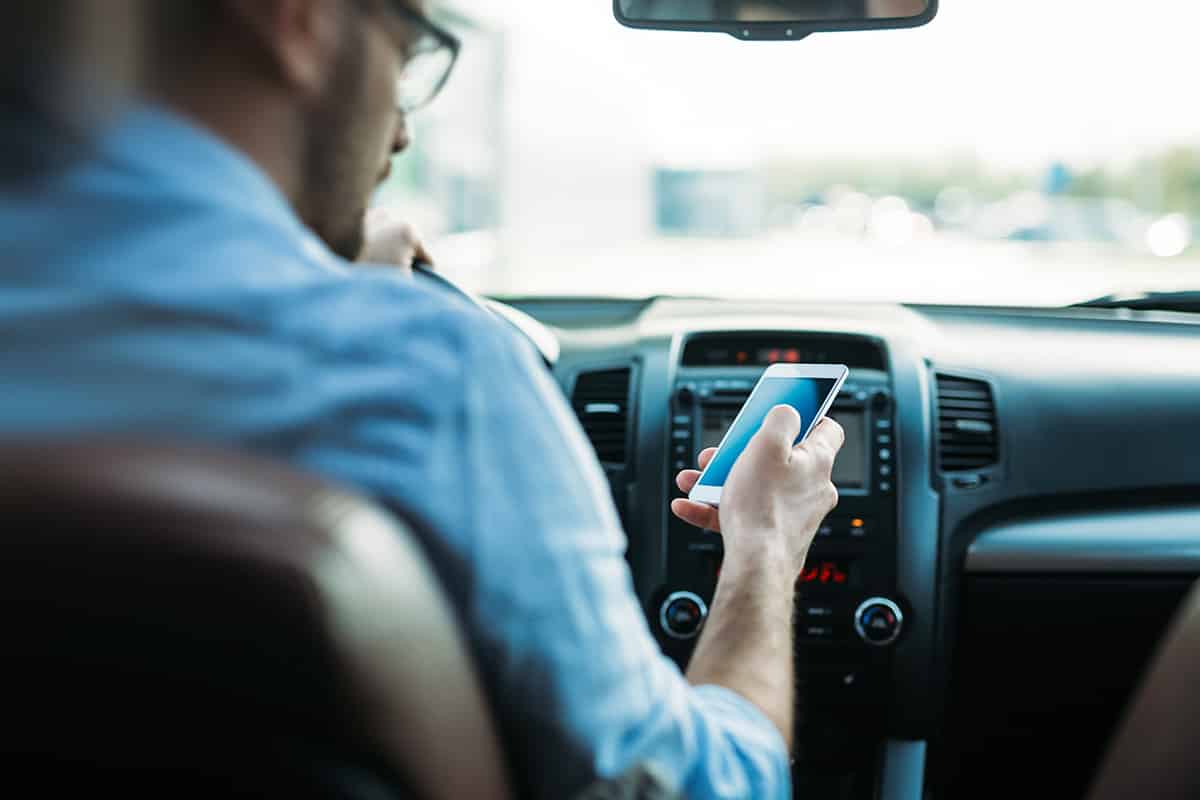On average, there are over 6 million car crashes in the United States every year.
Regrettably, according to the Association for Safe International Road Travel, over a million people lose their lives each year to auto accidents all over the world. Some of the most common causes of car accidents include:
- Drunk Driving
- Reckless driving
- Distracted driving
- Speeding
- Weather Conditions
- And more
These statistics show that car accidents are a global public health crisis. However, addressing this crisis is challenging, in part, because of the many different causes of car accidents.
Table of Contents
What Are the Most Common Causes of Car Accidents?
1. Driving Under the Influence
Driving under the influence of alcohol or drugs is one of the most common causes of car accidents. No one should sit behind the wheel after they’ve been drinking or using drugs—even if they’re prescription drugs. Driving after drinking, even if it’s just one or two (often referred to as buzzed driving) is never worth the risk of a DUI charge (which can be a felony in some cases) or injuring yourself or another motorist or pedestrian.
According to the National Highway Traffic Safety Administration (NHTSA), 30 lives are lost to drunk driving every day in the United States—that’s one person roughly every fifty minutes. What makes these drunk driving accidents even more tragic is how they are so easily prevented. In the age of ride-sharing services, such as Uber and Lyft, a ride home has never been more accessible (not to mention the classic option of calling a taxi).
If a friend has been drinking and plans to drive, help them find another way home—it could save their life. As a last resort, consider a room at a nearby hotel or motel, which we guarantee will still be cheaper than a DUI charge.
If you or a loved one has been injured by a drunk driver, contact our Denver Drunk Driving Accident Attorneys for a free case evaluation.
2. Reckless Driving
Reckless driving takes many forms, according to Cornell University. But at its core, it refers to someone operating a vehicle in such a way that puts other vehicles, people, and property, in harm’s way.
Reckless driving can be intentional or unintentional and still have the same impact. Operating a vehicle, no matter where you are, is a real responsibility and should always be treated as such.
The exact specifications for reckless driving vary by state. Some states may also consider a driver’s mental condition for these cases, and therefore, driving under the influence could fall under this category. Common examples of reckless driving include failing to obey traffic signs or signals, swerving into traffic, tailgating, speeding, and racing other vehicles.
3. Distracted Driving
While this infraction may seem harmless compared to drunk or reckless driving, distracted driving is one of the leading causes of car accidents. Taking your eyes off the road, even for just a few seconds, can lead to crashes with other vehicles or pedestrians. In 2018, distracted driving claimed over 2,800 lives in the United States.
Additionally, these types of wrecks are becoming even more prevalent due to our infatuation with cell phones. Texting while driving, for example, has become a common cause of car crashes, especially for teens and young drivers.
Compared to answering a call or changing the radio station, reading and responding to a text message takes your focus away from the road for an extended period of time. No matter how urgent a message might seem, trust us—it can always wait. If the urge is too strong, some apps can prevent you from texting while driving.
4. Weather Conditions
Unsafe and hazardous road conditions cause many auto accidents. In fact, according to the US Department of Transportation, approximately 21 percent of car crashes are weather-related.
This percentage of crashes includes those occurring in rain, snow, sleet, ice, or slick pavement. Of these weather conditions, most crashes (almost 50 percent) occur on wet pavement during rainfall. Not only does wet pavement make it more difficult to stop, but rainfall also makes it much more difficult to see the road and other vehicles.
If possible, try to avoid driving during hazardous conditions, such as rain, sleet, or snowstorms. If you’re on a long road trip, stay up to date on local weather conditions and plan accordingly. Of course, as we all know, weather conditions can change on a dime. If you find yourself in hazardous conditions, consider pulling over to a safe shoulder of the road until the conditions pass. If you must keep driving, stay extra cautious and slow your speed.
These states are particularly bad for weather condition-related accidents.
5. Speeding
Whether you’re late for work, excited to reach your destination, or not paying attention to your speedometer, speeding is a common occurrence on highways, two-lanes, and single-lane roads.
This activity is one of the most common causes of car accidents. Year over year, speeding is the cause of roughly a third of auto accidents in the United States. In 2017, speeding was the cause of a quarter of all traffic fatalities. What makes speeding so dangerous is that it’s difficult to gauge how fast you’re really going inside of a moving vehicle. Even once you hit the brakes, the momentum of your car prevents a quick and immediate stop.
A car traveling 60 miles-per-hour, for example, requires over four seconds and 300 feet of space before coming to a stop. That’s the length of driving across an entire football field. No matter where you’re driving, be aware of the posted speed limits–they’re there for a reason. Using cruise control on your vehicle (if it’s available) is a helpful method for keeping a steady speed.
HOW TO PREVENT CAR ACCIDENTS
Consider these tips the next time you get behind the wheel:
- Keep both hands on the steering wheel.
- Avoid tailgating.
- Merge slowly.
- Scan the road ahead.
- Use a GPS system instead of your phone.
- Keep up with your car’s maintenance.
CONCLUSION – COMMON CAUSES OF CAR ACCIDENTS
In the end, we hope you’ll never actually need the services of a Denver car accident attorney. However, even the safest drivers can’t always be accountable for other drivers’ reckless and unpredictable actions.
Because our primary concern is getting you the compensation you deserve, our law firm operates on contingency fees, which means we only get paid if you win. Give us a call at (720) 549-9826 to schedule your free consultation, or visit our website’s blog section for answers to many of your potential legal questions.
The Paul Wilkinson Law Firm is a team of personal injury attorneys in Denver, CO serving victims of car, truck and motorcycle accidents. Each of our lawyers is licensed with the Colorado State Bar (CBA) and specialize in injury law.
We've recovered tens of millions of dollars in personal injury settlements and verdicts for our clients. For 13+ years we've helped thousands of people get back on their feet after experiencing serious injuries. We will take your case to trial and get the maximum settlement possible.



